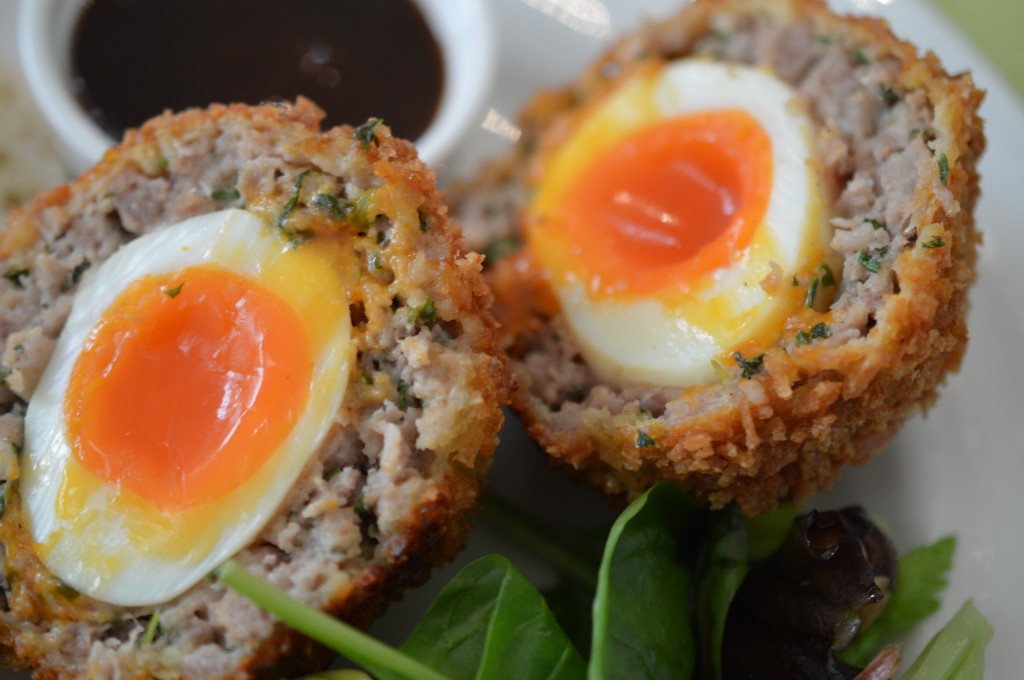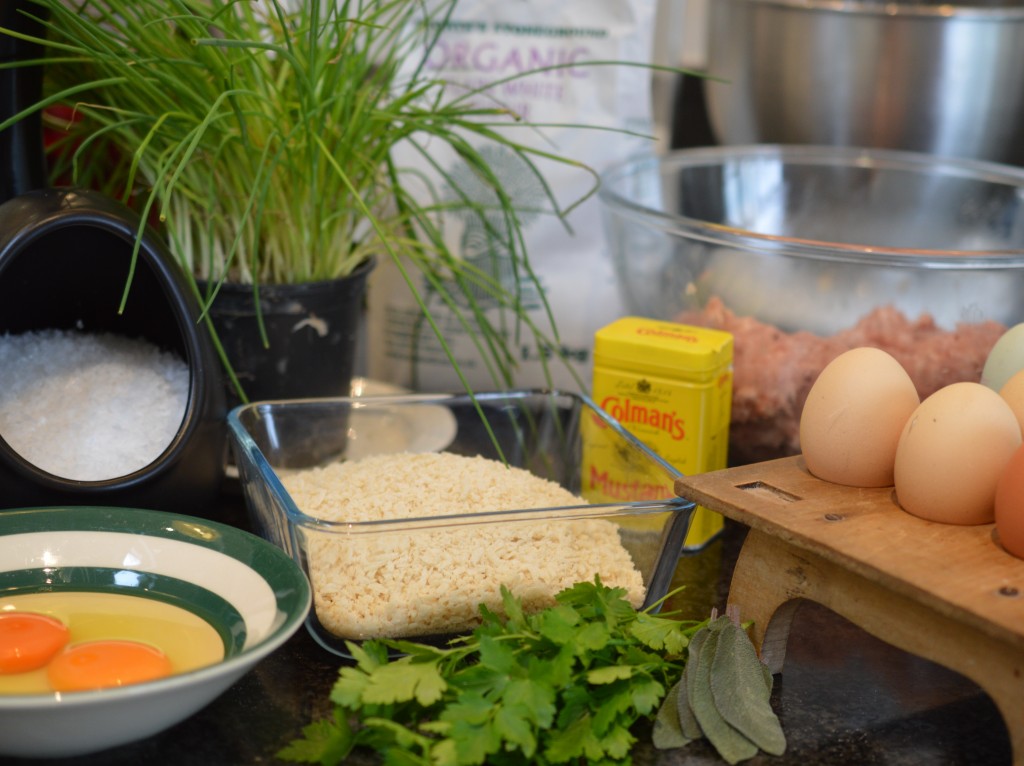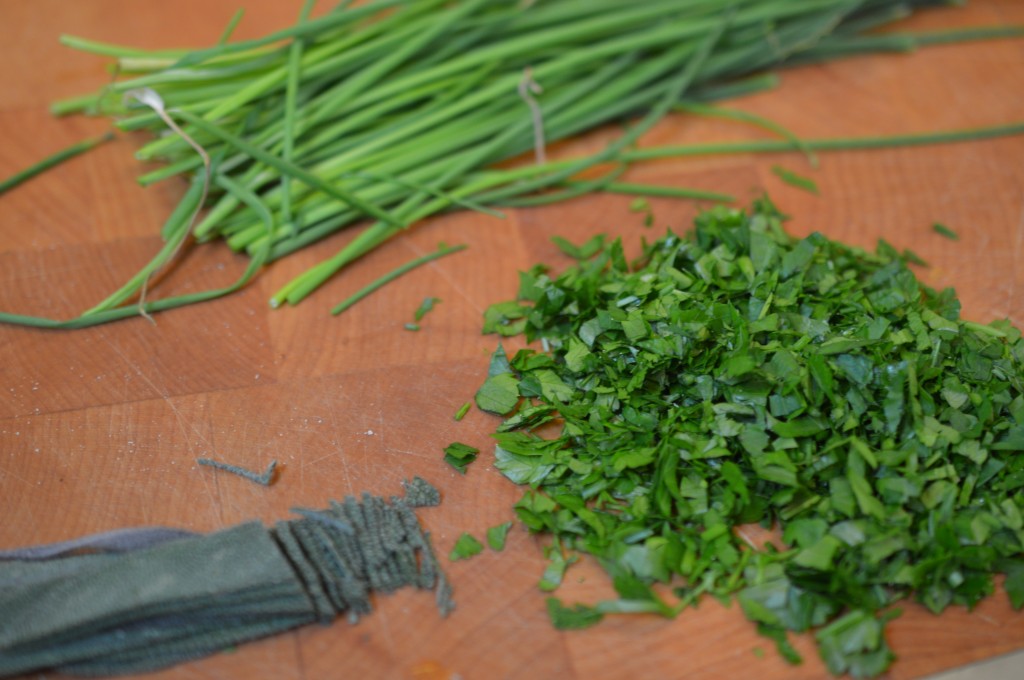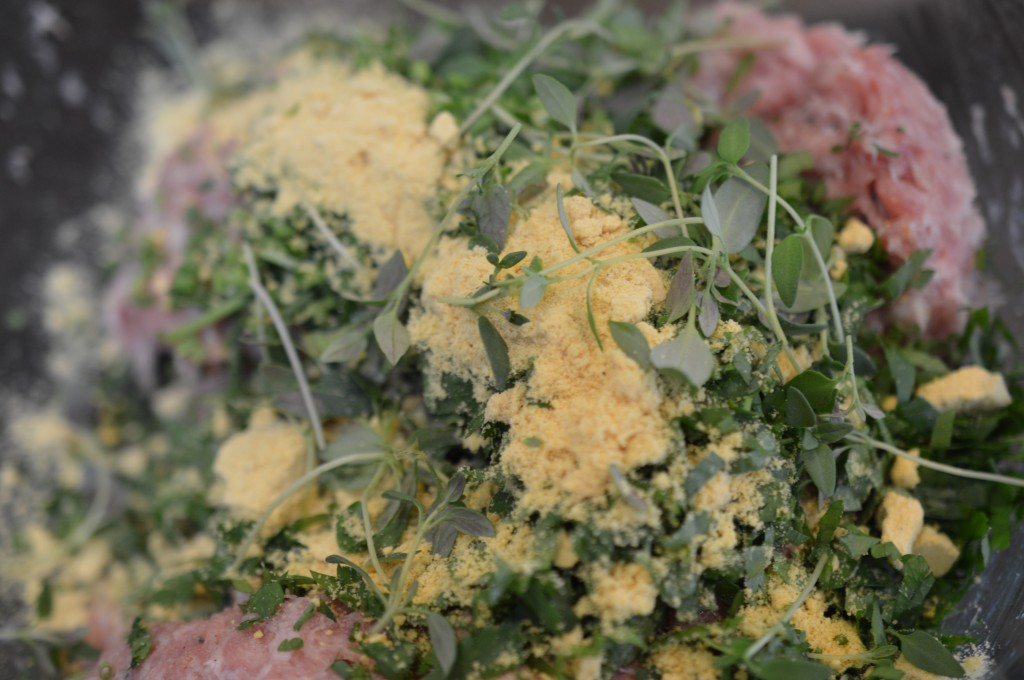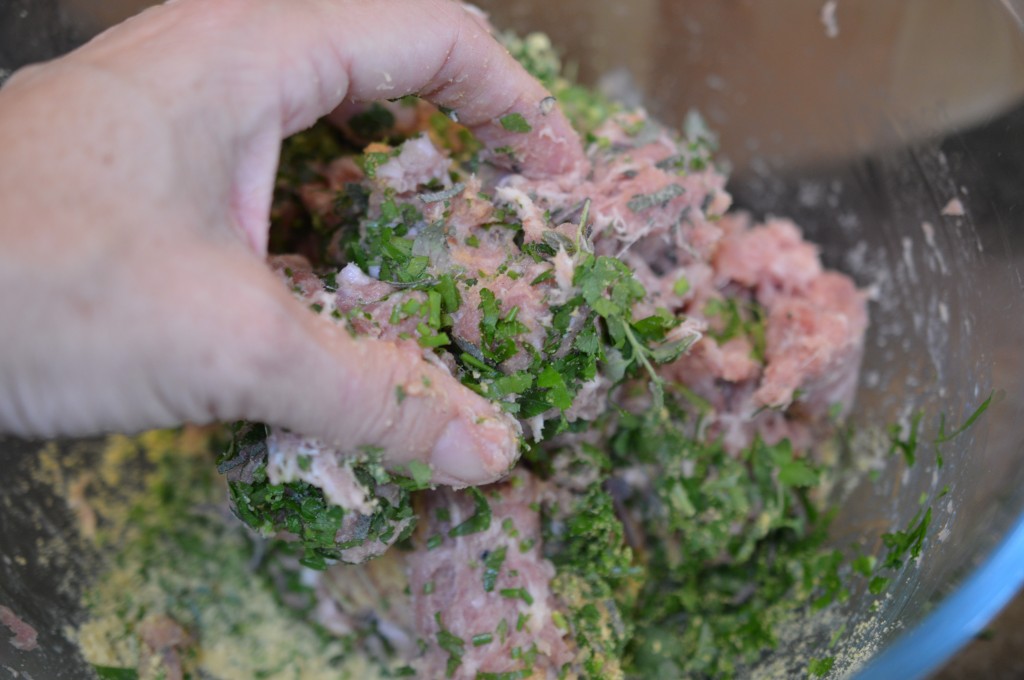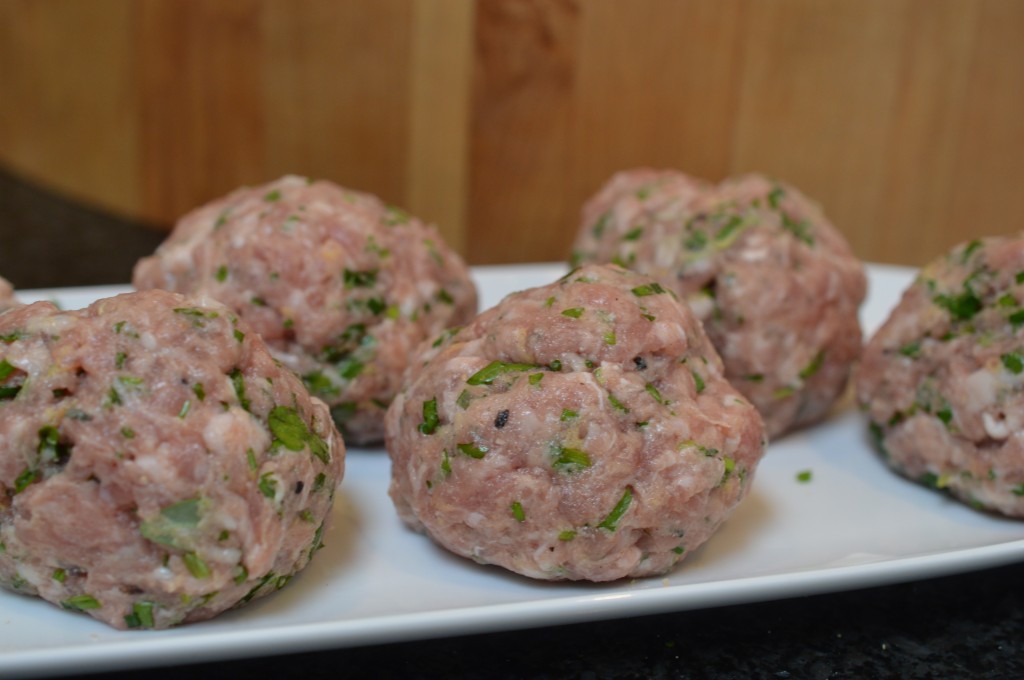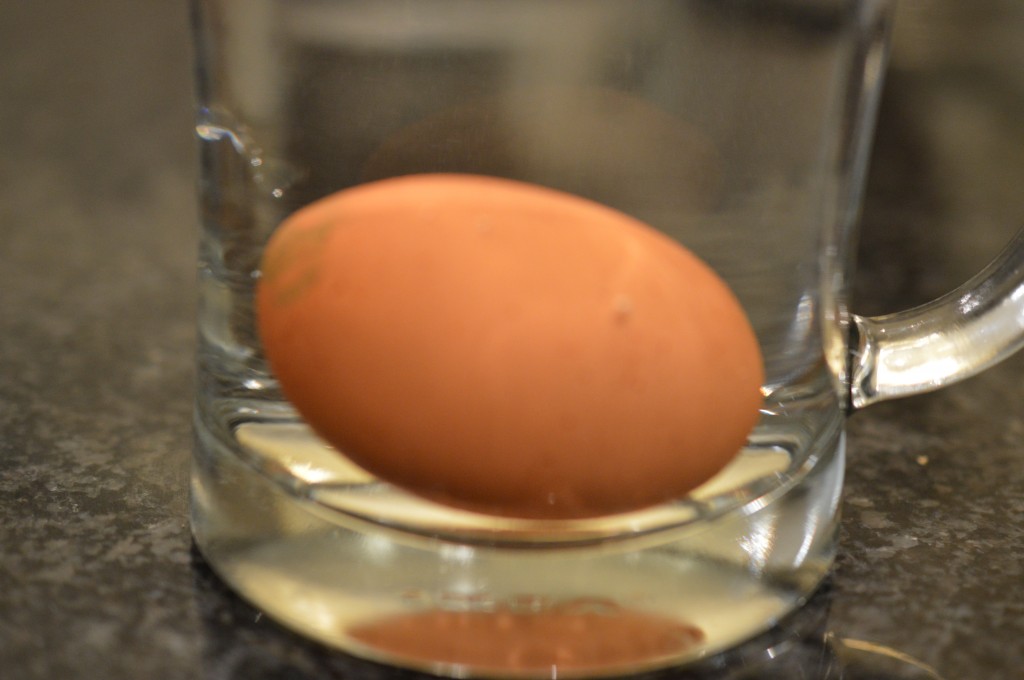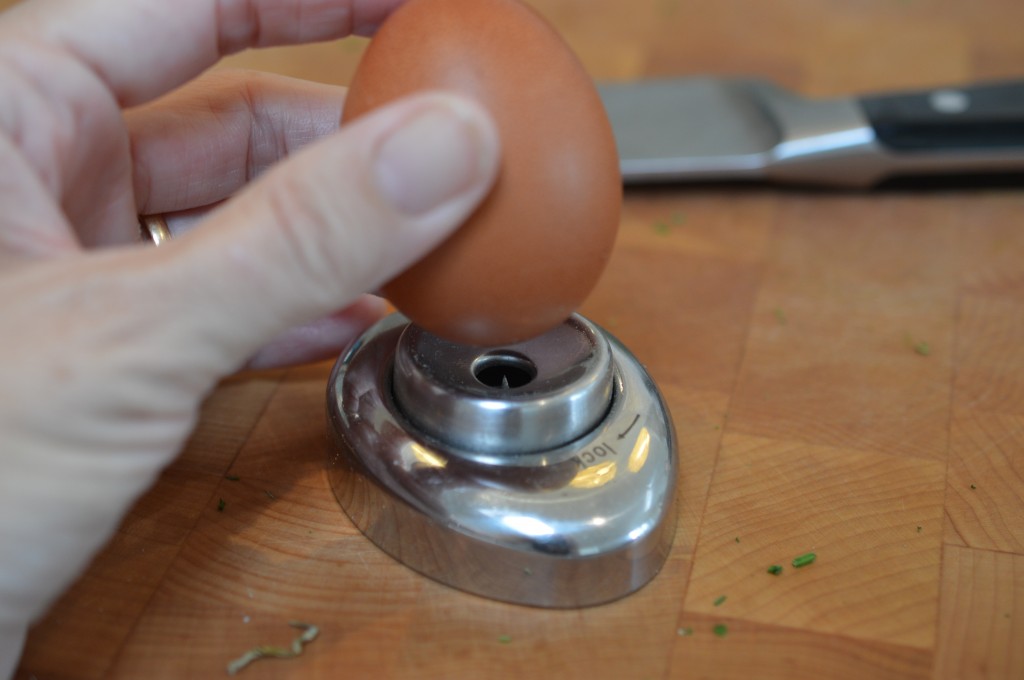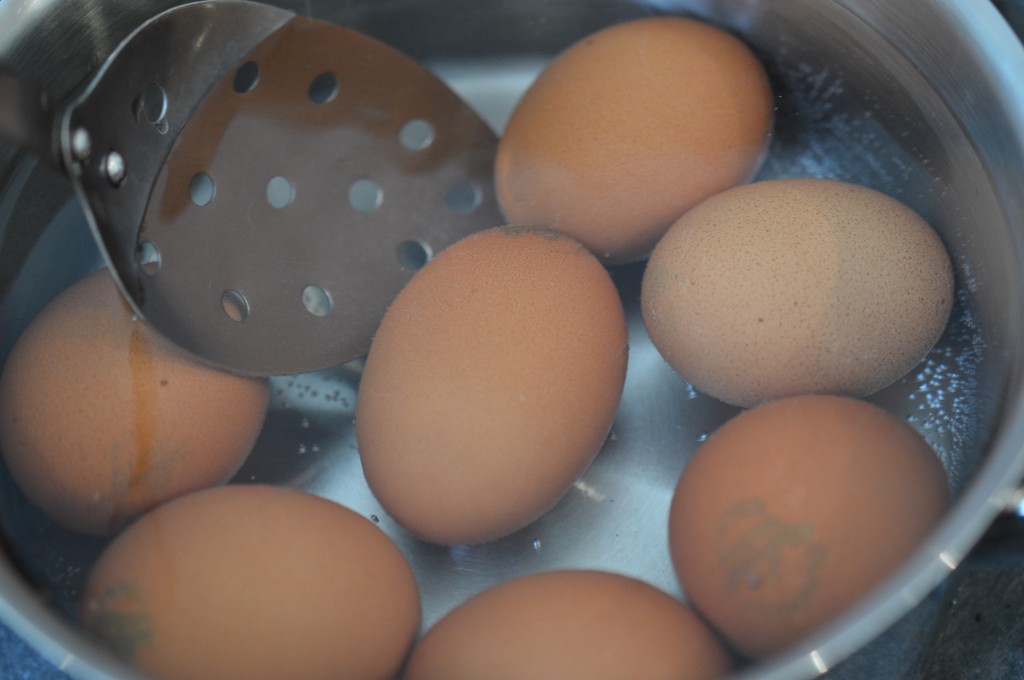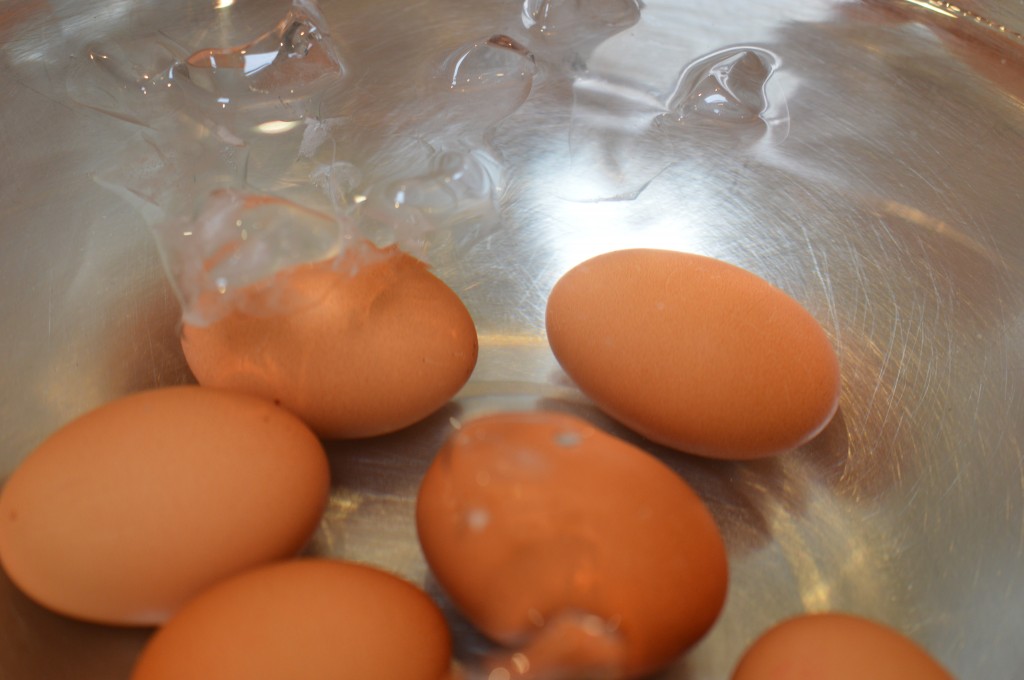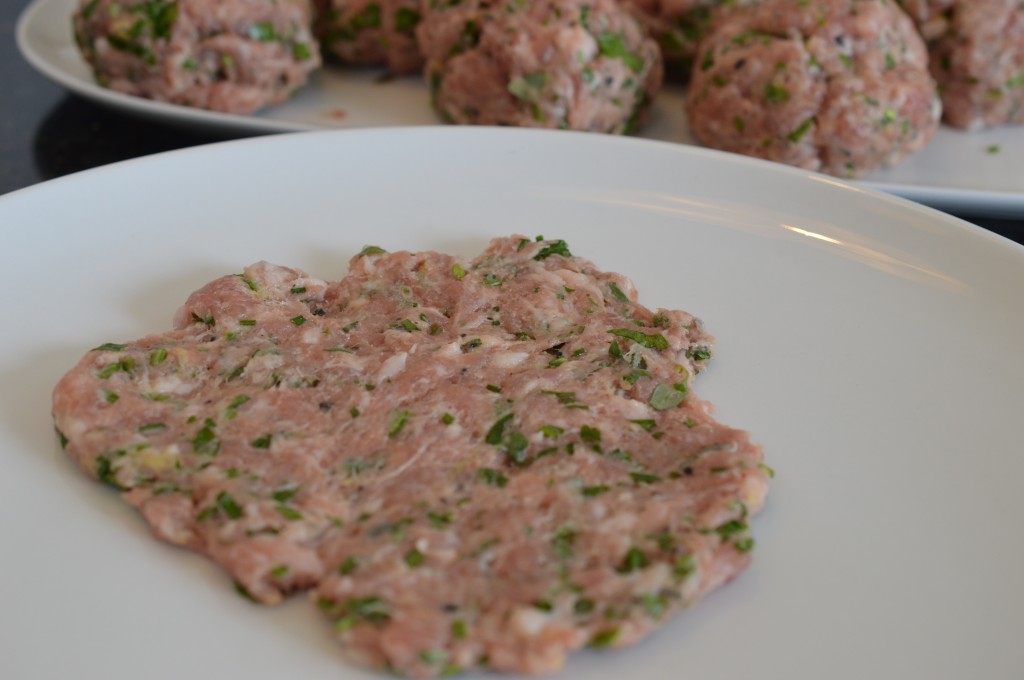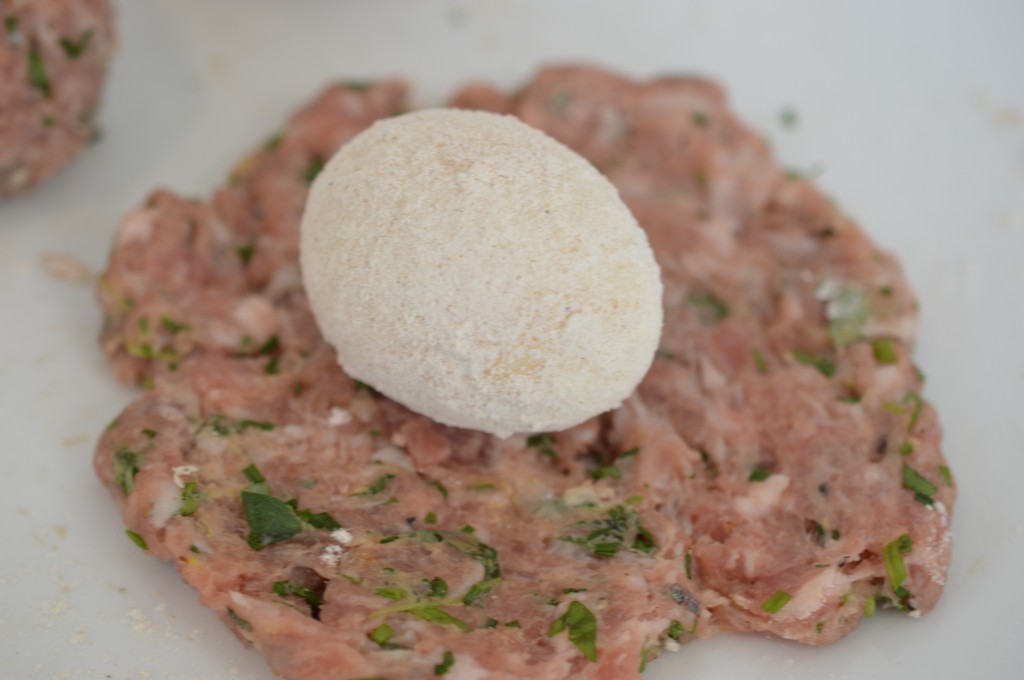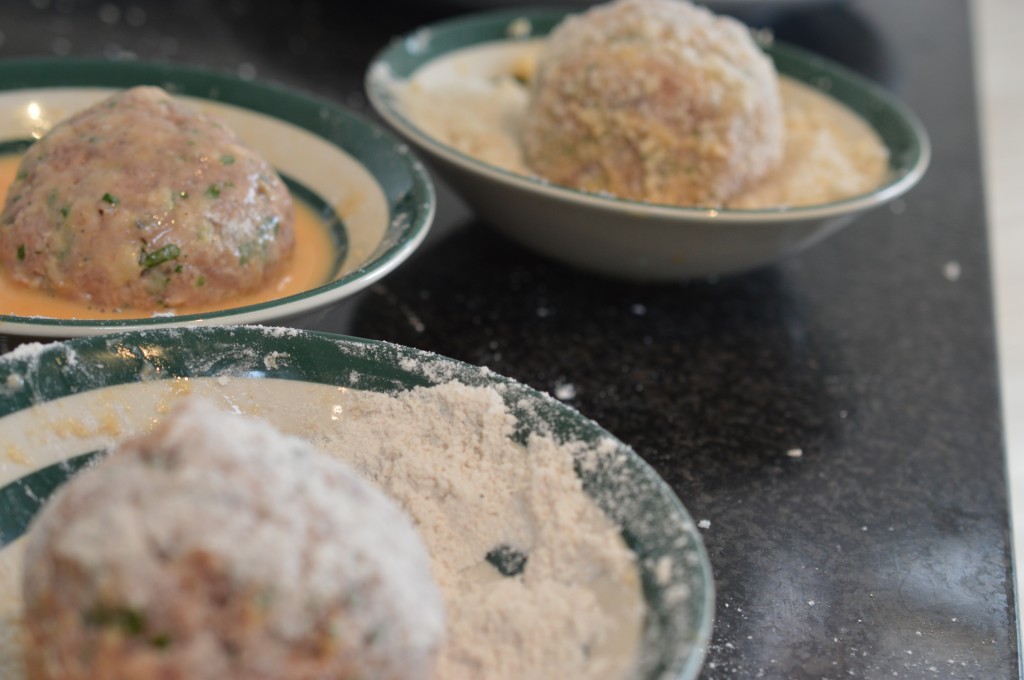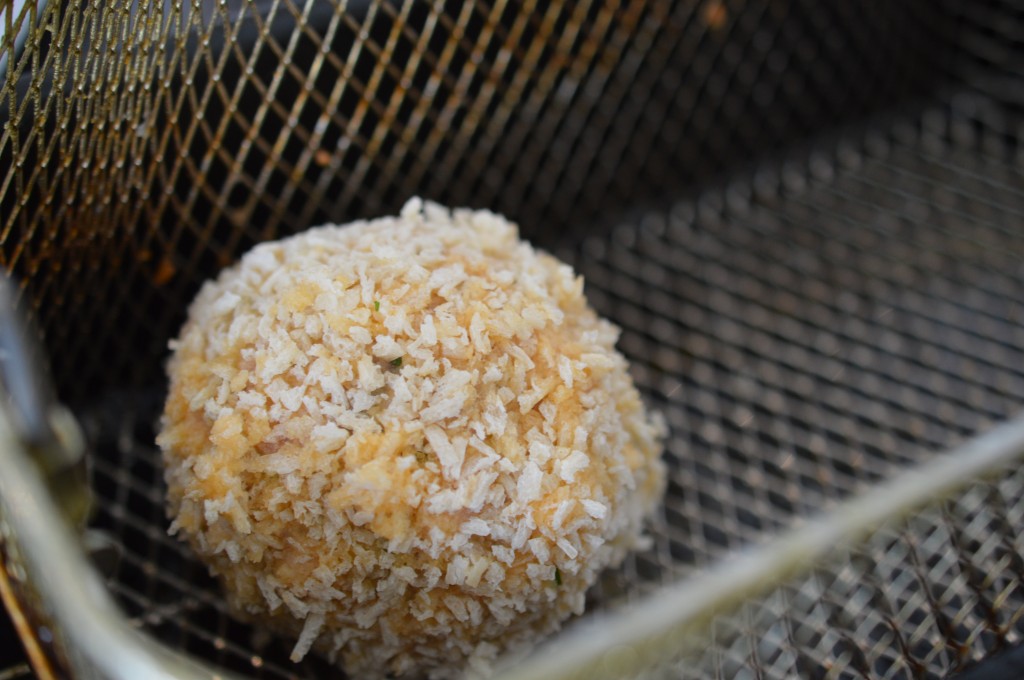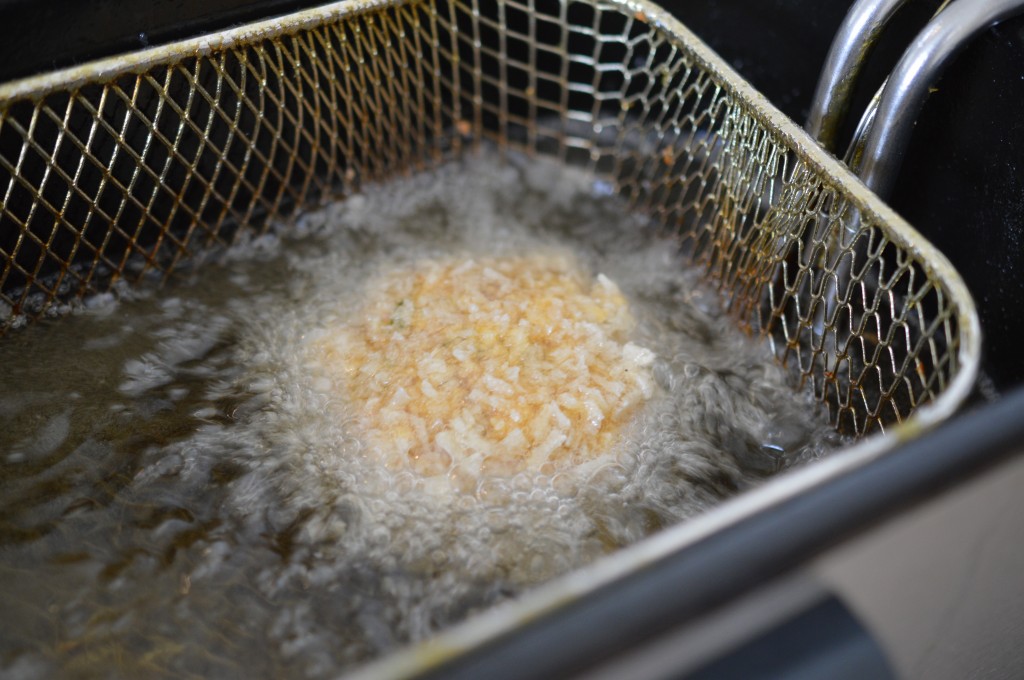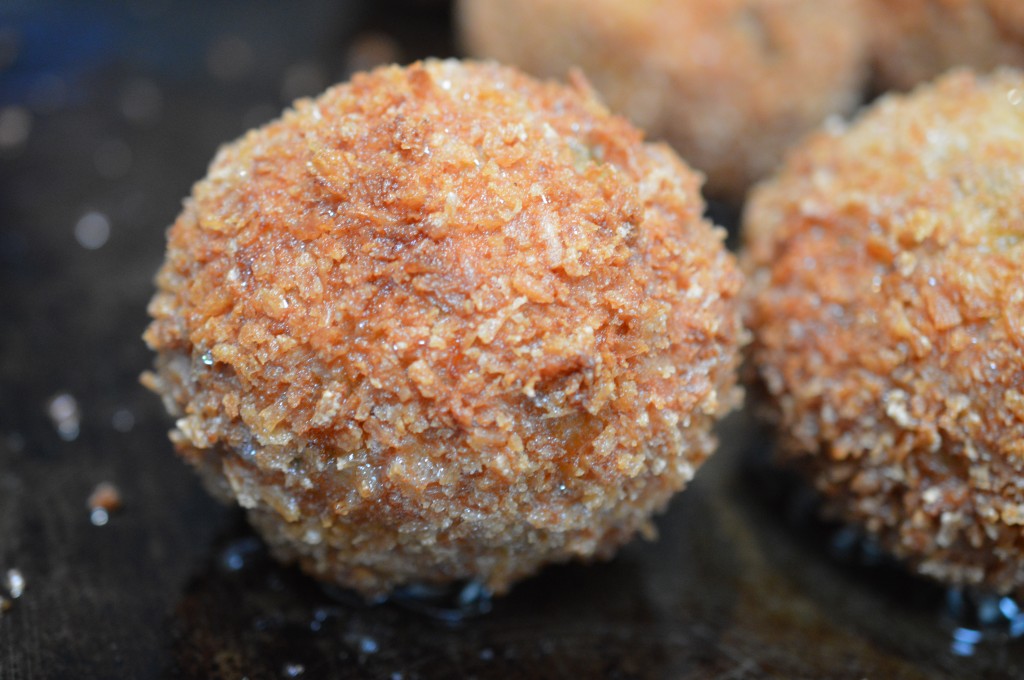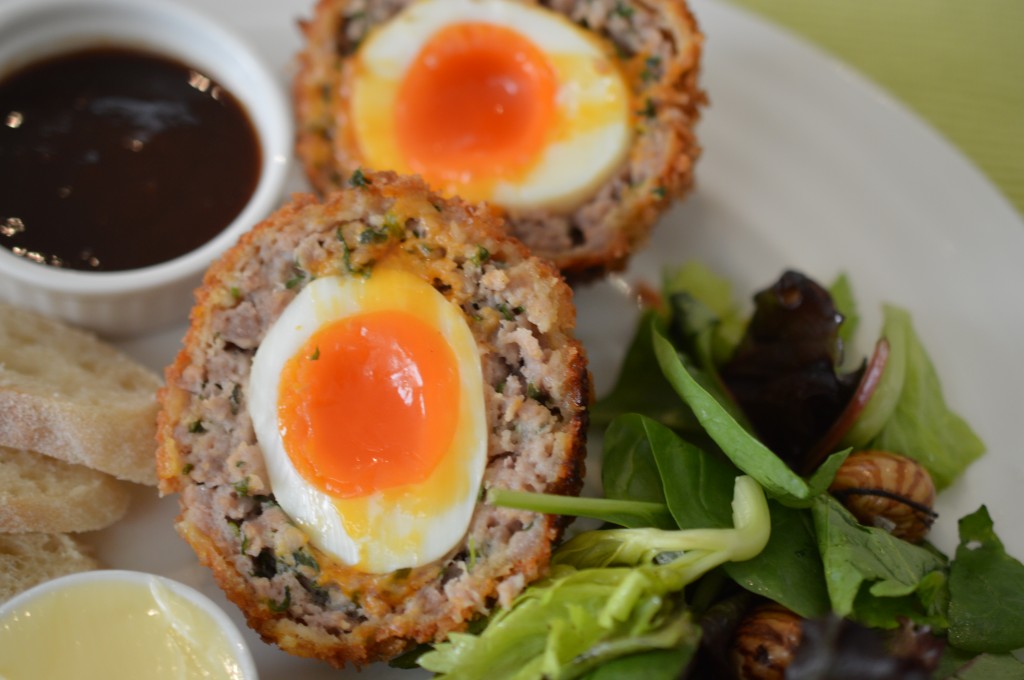Scotch Egg
The holy grail of the Scotch Egg is a runny yolk when you cut it open. How proud am I!!!!
As with all dishes of antiquity there’s controversy as to who first created it. Fortnum and Mason’s in London claim they did – in 1738 – as a portable snack for wealthy travellers starting their journey from one of the Piccadilly coaching inns. (Fortnum’s was founded in 1707 and holds countless royal warrants. I’d kind of like it to be their creation. It’s still a very nice, if aspirational, foodie shop…) There are those who believe it’s a British Raj adaptation of ‘nargisi kofta’. (Possible – we are a nation of culinary magpies.) The ‘scotch’ part is generally thought to be an abbreviation of ‘scotched egg’ which is an egg that has had something done to it in ye olde speake, as opposed to anything geographic.
Regardless of its origins the scotch egg is currently experiencing a resurgence in popularity, having weathered the travesty which is the rubber bouncing ball type you can buy in the chilled cabinets of motorway service stations. If you happen upon any there, walk away. It’s an eating experience it takes years to recover from. Like stewed cabbage.
Home-made scotch egg is the way to go.
Remember all that beef dripping from the chunky chips …..
(In fact, if you’re having chunky chips for supper and want to pack up something delicious for lunch the following day you can combine the ‘fry’.They make great picnic food…) Melt the solid beef dripping in a saucepan until liquid and transfer, if using, to a deep fat fryer.
The rest of the ingredients are more appealing to look at.
You can, of course, make your own sausage-meat – and since Liddy, my one and only daughter, bought a mincer attachment as a fathers’ day gift, we’ve started to. (We’ve yet to produce a sausage I’d show you, though. It’s tricky!!) Assuming you’re not going to do that, simply choose a sausage you like and remove the meat from the casings. Today I’ve gone for a very traditional plain pork, well seasoned with black pepper. You need 100g/3½oz per egg.
To that I add lots of fresh herbs – chives, parsley, thyme and sage. Roughly a tablespoon of mixed herbs per scotch egg.
Then 1 teaspoon of Dry English mustard powder per egg.
Mix. Clean hands are the best tool!
Divide your sausage-meat into portions. (And, yes, since you’re asking, I do weigh it. 100g/3½oz.)
At the centre of a scotch egg is … a soft boiled egg.
It helps to know how old your eggs are. Assuming you don’t have chickens, the best way to gauge how fresh your eggs are is to float them in a glass of water. If it lays horizontally at the bottom of the glass, it’s fresh and you’ll need to give your eggs an extra 30 seconds on the timings below. If it’s tipping off that horizontal but isn’t vertical, then it’s a little older. Vertical and your egg is stale.
Mine are pretty fresh, certainly less than four days old, (though you can see it beginning to tip). I’ll give it the extra time. They need to be at room temperature.
Eggs have an air pocket, so a pinprick made in the rounded end of your egg allows the steam to escape which will stop the shell cracking. (Father Christmas gave me this handy gadget.)
This is how I do it. Into a small saucepan (a large one would give them too much space to bounce about and make it much more likely they bash into each other and crack) place enough water to cover the eggs by 1cm/½ inch. Bring that to a gentle simmer (small bubbles on the bottom of the pan, but no movement on the surface of the water), then carefully lower the eggs in.
Set the timer for 1 minute. At the end of that – remove the pan from the heat, cover and leave for 6 minutes (that will give you a runny yolk and a just set white). I’m adding 30 seconds. Set a timer.
When the buzzer goes, transfer them to a bowl of iced water. If you don’t, they’ll carry on cooking … When they’re cold, peel.
Then get organised. You need three bowls. One with the seasoned flour. One with eggs, beaten and loosened with a splodge of milk. And a third with breadcrumbs (I keep a stash of these in the freezer and there’s no need to thaw.)
If you dampen your hands you’ll find this next bit a little easier. Flatten your sausage-meat balls to a size that looks like it will wrap around an egg.
Put your peeled egg in the seasoned flour. It’ll help the sausage-meat to adhere to the egg. Then gently bring the meat up to wrap around the egg. Pinch the meat together so there’s no gaps and – gently – roll between your hands to make a neat ball.
Then it’s a production line. Flour, egg wash, breadcrumbs. I love the crunchy outside, so do a second dip in the egg wash and breadcrumbs. Felicity Cloake uses panko breadcrumbs and I’ve taken to using them on the second dip.
Then it’s time for the fryer. I fry at 160ºC.
For exactly 10 minutes. And I do one egg at a time. As you can see, my fryer isn’t quite deep enough – so annoying – so I gently turn it in the oil to make sure it browns evenly.
And, then, because I like to be safe – I pop them into the Roasting Oven of my Aga for 5 minutes. 200ºC/ 400ºC. Drain on kitchen paper.
I love them fresh from the fryer, with brown sauce and a salad. My salad here is baby salad leaves, a little celery and the celery leaves – plus warm Kentish cobnuts (hazelnuts is a good substitute) which I’ve toasted in the oven with olive oil and salt.
Cold, scotch eggs make great picnic food. Blowy autumn day with a scotch egg and a flask of roasted tomato soup – yum.
Scotch Eggs – as many as you want and have eggs for, but I’m making 7
- 11 eggs (that’s 1 egg per scotch egg – plus 2 eggs for every four)
- 700g of sausage-meat (that’s 100g/3½oz per egg)
- 7 tablespoons of mixed herbs (1 tablespoon per scotch egg) – chives, sage, parsley and thyme are favourite English herbs. More if you wish.
- 7 teaspoons of English mustard powder (1 per scotch egg)
- Plain flour/all purpose flour, seasoned with salt and pepper
- Breadcrumbs – 100g/3½oz
- Panko breadcrumbs – 100g/3½ oz
- A splash of milk to loosen the egg wash
- Beef dripping to fry
Mix the sausage-meat with the fresh herbs and English mustard powder. Shape into 100g/3½oz balls.
Place your pricked eggs into a saucepan of simmering water for 1 minute, remove from the heat and allow to sit in the warm water, lid on, for 6 minutes. Plunge into iced water and leave until completely cold. Peel.
Set up your conveyor belt. One bowl of seasoned flour. One of lightly beaten eggs, loosened with milk. A third of breadcrumbs. An optional fourth of spiky panko breadcrumbs for added crunch.
Flatten your sausage-meat balls and place a floured egg in the centre. Bring the sausage-meat up and around. Gently roll between your hands to make a neat ball.
Coat with flour, then the egg wash, and then the breadcrumbs. Back into the egg wash and a final coating of breadcrumbs/panko breadcrumbs.
Fry at 160ºC for 10 minutes.
Place the cooked scotch eggs on a baking tray and bake for 5 minutes. (2ooºC/400ºF)
Drain on paper towel.
Eat.
